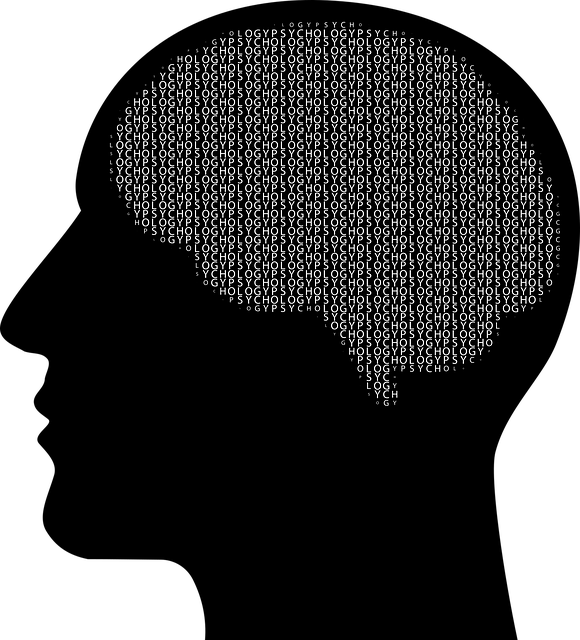The text discusses the challenges faced by Russian-speaking young adults in accessing mental health services, including language barriers and a lack of culturally sensitive options. To address this, specialized mental wellness coaching programs and podcast series are introduced as innovative solutions. These initiatives aim to fill cultural gaps and provide accessible emotional support, fostering an inclusive environment for therapy for young adults Russian speaking. Effective tailored therapy interventions, utilizing evidence-based practices and native language exercises, are emphasized. Evaluation techniques, such as interviews and focus groups, are crucial to understanding the programs' impact, particularly when combining general wellness principles with cultural specificity. Continuously incorporating participant feedback ensures these mental wellness programs remain responsive to the unique needs of Russian-speaking young adults.
Evaluating mental wellness programs is crucial, especially for diverse populations like Russian-speaking young adults. This article explores a comprehensive approach to assess and improve therapy interventions tailored to their unique cultural needs. We delve into identifying mental health challenges specific to this demographic and discuss effective program design.
Key evaluation techniques measure the impact of therapy, focusing on cultural sensitivity. By implementing feedback mechanisms, programs can continuously enhance care, ensuring optimal wellness outcomes for Russian-speaking young adults.
- Assessing the Need: Identifying Mental Health Challenges among Russian-Speaking Young Adults
- Program Design and Implementation: Creating Effective Therapy Interventions
- Evaluation Techniques: Measuring the Impact of Therapy for Cultural Specificity
- Continuous Improvement: Using Feedback to Enhance Wellness Programs
Assessing the Need: Identifying Mental Health Challenges among Russian-Speaking Young Adults

Assessing the need for mental wellness programs among Russian-speaking young adults involves recognizing the unique challenges they face in accessing appropriate therapy. Many young adults from this linguistic background may encounter barriers such as limited access to culturally sensitive mental health services, language differences, and a lack of awareness about available support. These factors can contribute to undiagnosed or untreated emotional regulation issues, which, if left unaddressed, can have significant impacts on their overall mental wellness.
Given the growing recognition of mental health as a vital aspect of overall well-being, there is an increasing demand for tailored solutions. This need has prompted the development of specialized mental wellness coaching programs and mental wellness podcast series production to cater specifically to Russian-speaking young adults seeking therapy for young adults Russian speaking. Such initiatives aim to bridge cultural gaps and provide accessible resources that address emotional challenges head-on, ultimately fostering a more inclusive environment for mental health support.
Program Design and Implementation: Creating Effective Therapy Interventions

Effective therapy interventions are a cornerstone of any robust mental wellness program, especially when tailored to meet the unique needs of young adults in the Russian-speaking community. Program design should incorporate evidence-based practices known to enhance mental health awareness and foster positive changes. For instance, incorporating individual and group therapy sessions that encourage open dialogue and active participation can create a supportive environment where young adults feel comfortable discussing their challenges.
When designing such programs, it’s crucial to consider the cultural nuances of the target population. Russian-speaking young adults may have distinct perspectives shaped by their heritage, language, and life experiences. Mental wellness journal exercises guided in their native language can offer valuable insights into their thoughts and emotions, promoting self-awareness and introspection. Additionally, risk management planning should be integrated into program implementation to ensure the safety of both clients and mental health professionals, addressing potential challenges that may arise during therapy sessions.
Evaluation Techniques: Measuring the Impact of Therapy for Cultural Specificity

Evaluation techniques play a crucial role in understanding the impact and effectiveness of mental wellness programs, especially when tailored for specific cultural needs, such as therapy for young adults speaking Russian. Measuring the success of these programs requires a nuanced approach that considers the unique challenges and strengths within the Russian-speaking community. One effective method is through qualitative assessments, where participants’ experiences and perceptions are gathered through interviews or focus groups. This allows for an in-depth exploration of individual journeys, cultural influences on mental health, and the specific benefits derived from therapy sessions.
For instance, a study could examine how mindfulness meditation practices, a key component in many therapeutic programs, resonate with Russian-speaking young adults. By integrating Emotional Intelligence (EI) assessments, researchers can delve into participants’ self-awareness, understanding of others, and emotional regulation skills, all while considering cultural context. This multi-faceted evaluation approach ensures that the therapy aligns not only with general mental wellness principles but also respects and incorporates cultural specificity, fostering more meaningful and impactful results for this particular demographic.
Continuous Improvement: Using Feedback to Enhance Wellness Programs

Mental wellness programs can greatly benefit from adopting a culture of continuous improvement. This involves actively seeking and incorporating feedback from participants to enhance program effectiveness. Russian-speaking young adults seeking therapy often have unique cultural needs and preferences, making their input invaluable. By encouraging open dialogue and gathering insights, program evaluators can tailor interventions to better address these specific challenges. For instance, feedback might highlight the importance of incorporating cultural elements or specific techniques like mindfulness practices that align with Mind Over Matter principles, thereby enhancing self-esteem improvement and emotional intelligence development.
Regularly reviewing and acting upon this feedback ensures programs evolve to meet the changing needs of their target audience. This iterative process fosters a more inclusive and responsive environment for mental wellness support, particularly in catering to the distinct needs of Russian-speaking young adults.
Evaluating mental wellness programs is essential for understanding their effectiveness, especially when catering to specific cultural needs like those of Russian-speaking young adults. By assessing the program’s impact through diverse evaluation methods, including measuring therapy outcomes and gathering feedback, we can identify areas for improvement. This tailored approach ensures that therapy interventions are not only reaching but also positively impacting this demographic. Through continuous refinement, mental health services can become more inclusive and accessible, ultimately fostering better well-being among Russian-speaking young adults. Implementing these evaluation techniques is a crucial step towards enhancing support systems for this population.








